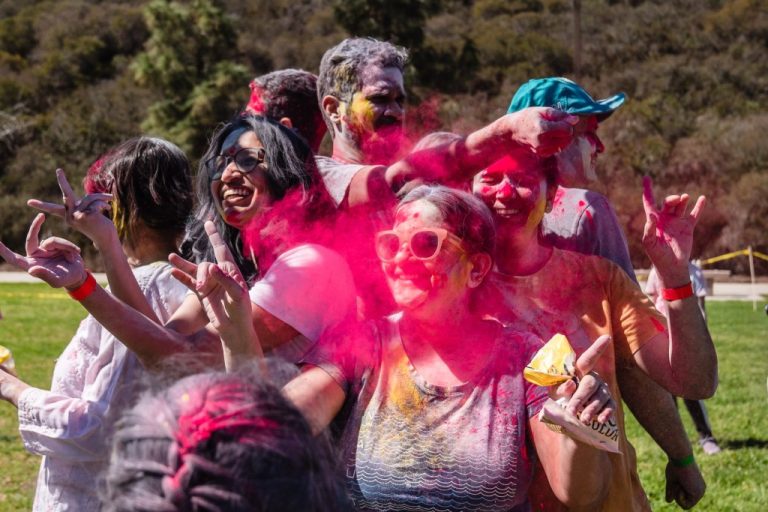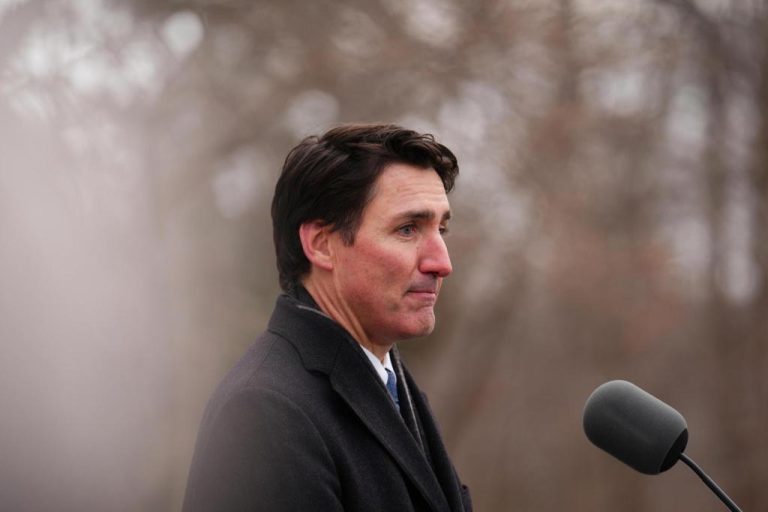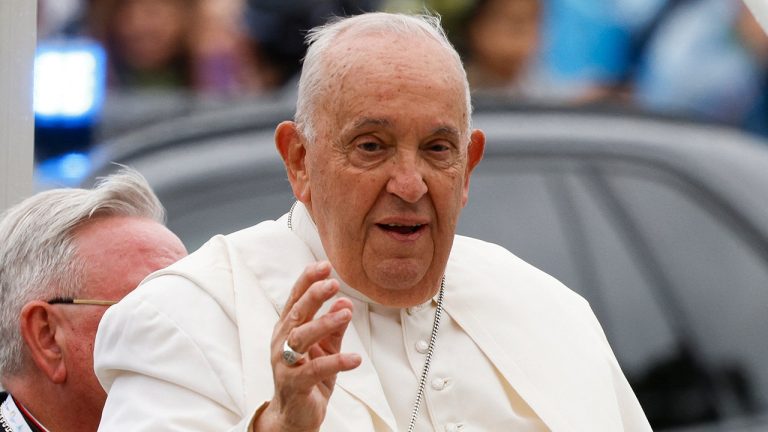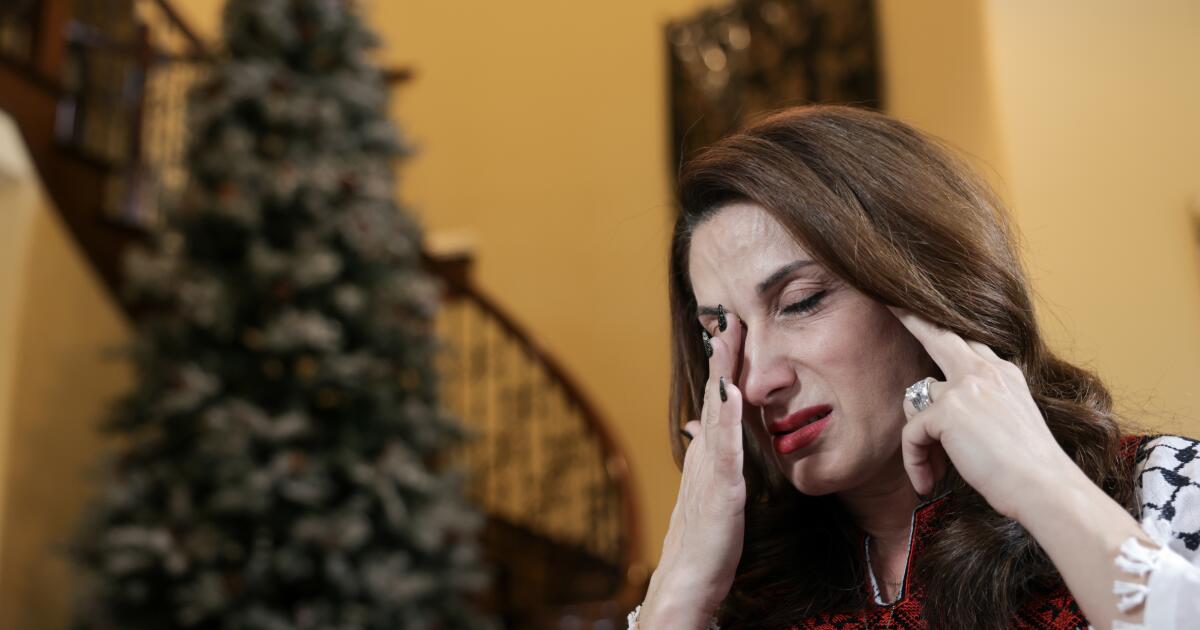
There are no ornaments on Sandy Husari Battikha’s Christmas tree. Only a small Nativity scene sits under its barren boughs.
Battikha, a Palestinian Christian, said she didn’t have the heart to do more — not while violence rages in her homeland.
“We’ve been crying day and night, every time we see the news,” the San Diego resident said. “How could we celebrate while our brothers and sisters back home are going through this tough time?”
Despite the deep religious and cultural significance of Christmas for many Palestinian Christians, this year’s festivities have been overshadowed by the Israel-Hamas war, now stretching into its third month.
On Friday, health officials in Gaza said the conflict had marked a grim milestone — 20,000 Palestinians dead, about two-thirds of whom were women and children, national news outlets reported.
Israel declared war after militants from Hamas — a group designated as a terrorist organization in the United States — stormed across the border on Oct. 7, killing hundreds of Israelis in their homes and at a dance festival, and taking some 240 hostages. Israel has vowed to continue the fight until Hamas is destroyed and removed from power in Gaza and all hostages are freed.
Israel’s offensive has displaced nearly 85 percent of Gaza’s 2.3 million people, leaving more than half a million people starving, according to a report Thursday from the United Nations and other agencies.
Palestinian Christians across San Diego are grieving for those lost in the conflict and agonize over friends and family who remain. Some are angry that more isn’t being done to halt the bloodshed. Others worry that war may eradicate the already dwindling population of Palestinian Christians who call Gaza home.
Like Battikha’s somber living room, the joyous trappings of Christmas are missing from many of the spaces this small, tight-knit community hold dear.
Bethlehem, revered by Christians as the birthplace of Jesus, is all but shuttered this season. The small West Bank city is usually awash with music and lights as it welcomes visitors from across the world.

People walk in Manger Square, adjacent to the Church of the Nativity, traditionally believed to be the birthplace of Jesus Christ, in the West Bank town of Bethlehem on Dec. 16, 2023. World-famous Christmas celebrations in Bethlehem have been put on hold due to the ongoing Israel-Hamas war.
(Mahmoud Illean / Associated Press)
This year its walkways are deserted. At one church, instead of a traditional nativity scene, a baby Jesus wrapped in a black-and-white Palestinian keffiyeh rests atop shards of concrete, calling to mind the destroyed buildings that now litter the Gaza Strip, according to news reports.
But even in the face of hardship, the message of Christmas — of hope and peace — endures.
In San Diego, members of the Palestinian Christian community have banded together, offering support to one another and those overseas.
Battikha said her church, St. George Antiochian Orthodox Church in City Heights, and another church, St. Jacob Melkite Greek-Catholic Church in Serra Mesa — which both have large Palestinian congregations — are working together to send money to churches in Gaza that will then distribute funds to those in need.
Both churches are following the example set by other churches across the Holy Land and are limiting Christmas festivities this year.
“We have to show our respect and our sympathy for all the innocents who are suffering,” said Dani Maria, parish council president at St. Jacob’s. “For all the destruction and the death.”
It is a violence known to Battikha. She was a young girl when the first intifada — an Arabic word that translates to “uprising” or “shaking off” — gripped the West Bank and Gaza in the late 80s. The conflict, born out of growing frustration over the Israeli occupation of the West bank and the Gaza Strip, included a series of Palestinian demonstrations, nonviolent actions and attacks. The Israeli military responded with heavy force.
“I feel every little thing they’re going through right now, because I lived it,” she said.
Her family, like many others, fled the violence. They first moved to Jordan. Battikha later emigrated to the United States in 1999.
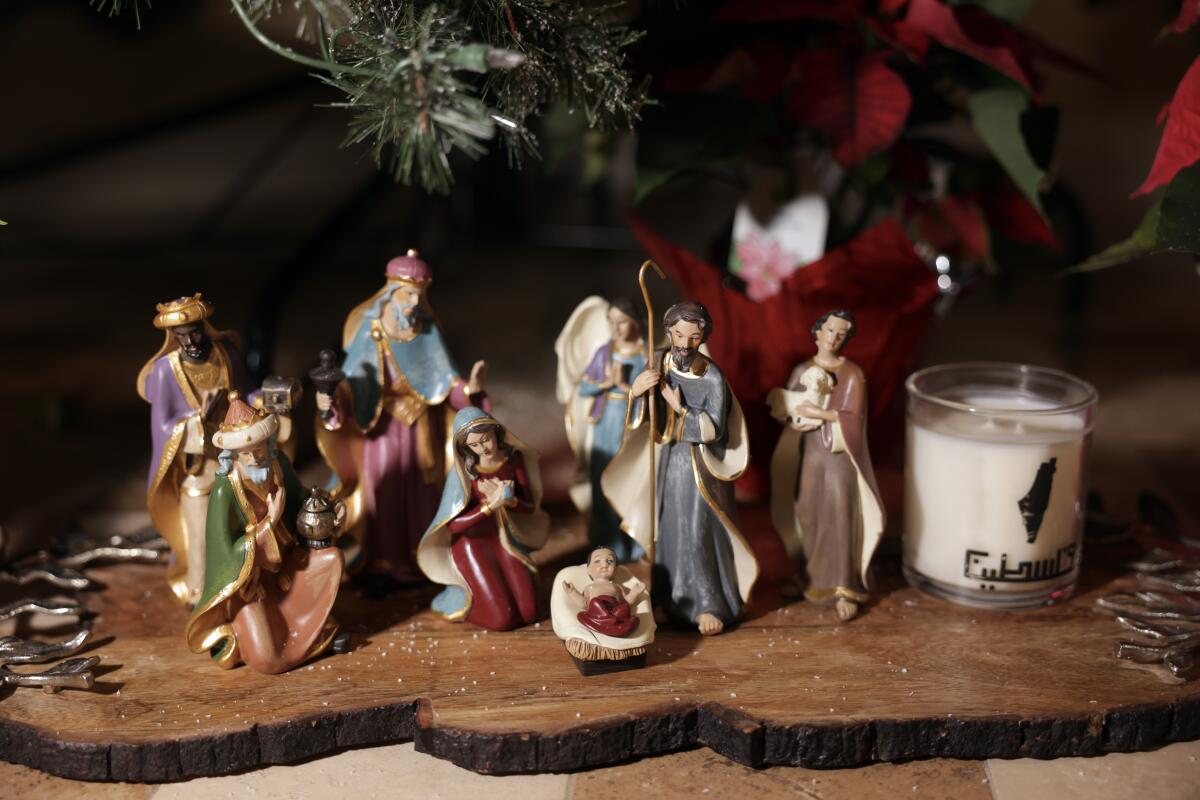
A nativity scene sits under Sandy Husari Battikha’s Christmas tree, which she did not decorate with ornaments this year.
(Hayne Palmour IV/For The San Diego Union-Tribune)
According to the U.S. State Department’s international religious freedom report for 2022, there are 50,000 Christian Palestinians estimated to reside in the West Bank and Jerusalem. Approximately 1,300 Christians lived in Gaza, it said. Reports of Palestinian Christians being killed in the current war include a mother and daughter sheltering at Roman Catholic church compound in Gaza City.
“They run away to be safe, just like I did with my family, but it’s unfortunate that they become less and less in the Holy Land,” Battikha said. “This is where Jesus was born and crucified. This is the cradle of Christianity.”
But the spirit of the holiday remains, and the coming of Christ, and his message of hope, is one the community and the world needs deeply, Maria said.
He made it clear that his church still intends to fully celebrate Christmas in a spiritual sense, with liturgical services and traditional hymns.
“It’s beautiful to know that Christ, our redeemer, our salvation, our hope, will be brought into this world very soon,” he said. “That is always something to celebrate, to look forward to and to be hopeful for.”
Anne Ahwal, who also attends St. George’s, said her family has been devastated by news of the war. As both a Palestinian and a Christian, she felt moved to find a way to honor both her culture and her religion this season.

The Ahwal family Christmas tree is decorated like the Palestinian flag.
(Courtesy of Anne Ahwal)
So instead of holiday baubles, Ahwal and her family used flowers and feathers and ornaments to transform their tree into a Palestinian flag. A checkered keffiyeh spirals the base in lieu of a tree skirt.
“It is our way of honoring the children of Gaza, of reminding people that we are Palestinian and that we are Christian,” she said. “A lot of people forget that there’s Palestinian Christians even though that’s where the whole story started.”
It was also an opportunity to ensure her children learned about the Palestinian experience — what they’ve endured and are still enduring — like Ahwal’s parents did for her.
Ahwal’s family emigrated to the United States in the wake of the first Arab-Israeli war in the late 1940s. During the conflict, hundreds of thousands of Palestinians fled the region, and more than 15,000 were killed.
“I want us to be proud of who we are — especially now,” she said.
As Christmas approaches and the conflict continues, Battikha, Ahwal and Maria all said they are lifting the region up in prayer.
“We pray for all the suffering in that region,” Maria said. “We pray for peace and for love to overshadow a place that should be the most holy, the most peaceful, and the most joyous on Earth.”


